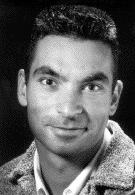![]()
![]() · Index
· Index
Nutrition News
from the Netherlands: a Conference, and a Doctoral
Defense
Louise Burke, Australian Institute of Sport, Canberra, Australia
|
|
|
|
|
Louise Burke, Australian Institute of Sport, Canberra, Australia |
On January 30th, Maastricht, the Netherlands was the site of two exciting events in sports nutrition. The first event was a one-day conference titled "Advances in Training and Nutrition for Endurance Sports: from Theory to Practice". The conference was held at the impressive Papendal Olympic Training Center, under the banners of the Netherlands Olympic Committee, the Netherlands Sport Federation, and the Isostar Sport Nutrition Foundation. How much can you learn in only a day? A lot, thanks to organizers Dr. Fred Brouns, his wife Martina, and Dr. Asker Jeukendrup. They pulled together a stellar panel of speakers and a thought-provoking program, including:
The program was accompanied by a detailed abstract book, which included an important summary section in which the practical guidelines resulting from all papers were integrated. Hopefully, we can look forward to seeing this summary paper appearing in future editions of the Insider publication of the Isostar Sports Nutrition Foundation.
As good as the individual presentations were, the highlight of the day was a panel discussion, tightly chaired by Fred Brouns, which provoked efficient and authorative summaries from the previous speakers on a range of popular topics and issues in sports nutrition. These included the Zone diet (a big thumbs down), L-carnitine supplements (not taken up by the muscle, therefore no benefit to performance), chromium picolinate supplements (no proof from well-designed studies of any strength benefits, although there is some discussion that athletes may have increased requirements for chromium), colostrum and glutamine supplements (no proof to support benefits to the immune system or training adaptations), and post-exercise saline or glucose infusions (a high risk way to ingest fluid or carbohydrate. May be useful to Tour riders who want to sleep rather than eat/drink at the end of each day's stage, however for most athletes and sports events, intake by mouth is cheaper, effective, and more practical).

|
|
|
The defense itself took place "in public", and the audience was treated to a emotionally charged ceremony. Wearing a tuxedo and accompanied by his two best friends, Asker took the stage in front of his panel of examiners. Not to be out dressed by the defendant, they were adorned in full robes and floppy hats. Asker first presented an overview of his thesis for the benefit of the lay audience. Although it was in Dutch, some great slides and my previous night's reading helped me to "go with the flow". Following his summary, the real task was at hand. Asker was questioned by his examination panel. Each member (including many of the speakers from the previous day's conference) was required to ask a tricky question, and Asker had to provide a satisfactory reply to his "highly esteemed opponent". On the stroke of the hour, the ceremony was interrupted by a town-crier-like-person who banged the floor with a huge gavel and declared the “inquisition” completed. The rules of engagement required that at this point, come what may, the panel was to retire and make a decision. Needless to say, this panel returned with good news for the new Dr Jeukendrup, and a huge certificate to solemnize his doctorate.
A reception and party followed, and lingered late into the night.
Asker had not one but three recent achievements to celebrate: his
marriage to Antoinette, his completed PhD., and his move to Austin,
Texas to take up post-doctoral studies with Prof. Ed Coyle. We wish
Asker well, and are certain that he will continue to contribute both
meaningful research, and color and excitement to the world of sports
science and nutrition.